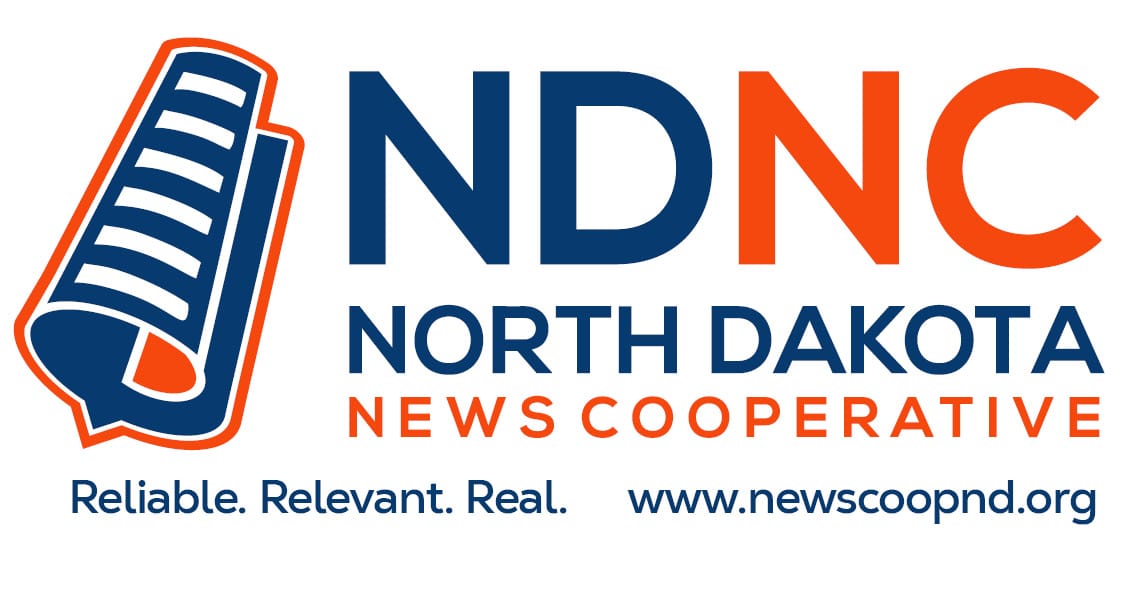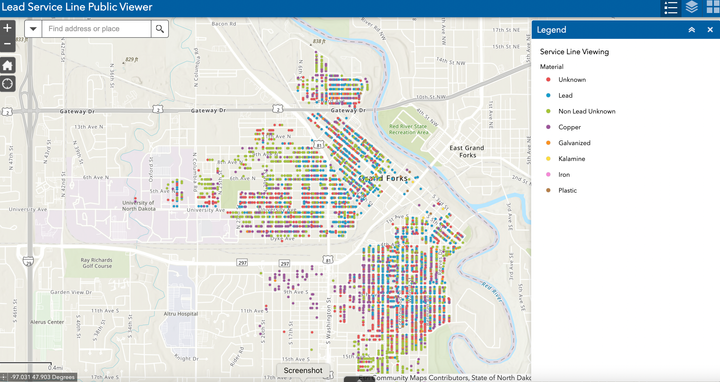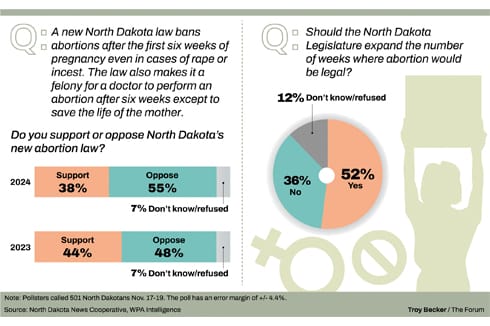Talk leading to action in addressing mental, behavioral health in North Dakota
Over 800 peer specialists now trained to support those in recovery
Claire Bullis could have given up on herself. Most others already had. She almost did, too.
For years Bullis wound her way through the tangled thicket of anxiety, depression, post-traumatic stress disorder and anorexia, going in and out of institutional care and treatment centers.
Finding a community where she felt safe enough to talk about her mental health journey, at Lighthouse Church in Fargo, was one of the first steps on her road to recovery. Another was sharing her experiences and providing support to others going through similar challenges in life.
Bullis is one of more than 800 peer support specialists trained and certified in North Dakota since 2018. They act as sounding boards, life coaches, confidants, and non-judgmental partners for those who wrestle daily with mental and behavioral health challenges.
Peers across the state are increasingly filling gaps in a healthcare system struggling to keep up, especially in underserved rural areas, where staffing and facility shortages are most intensely felt.
Breaking through the barriers of stigma, finding and providing social connections through support groups and helping others, allows peers to both aid those in recovery and continue on their own recovery path, they say.
“I have found that the more I interact with people, and the more I'm just talking with others, and just saying ‘How's life going today?’ the more it's been really helpful,” Bullis said. “It’s almost kind of validating to a certain extent. There for so long, I never believed I'd get out.”
Gaining a greater understanding of her own challenges and successfully addressing them, Bullis has now become someone others can turn to.
“It’s almost a little shocking sometimes to think like, yeah, I did make it, and now I know how to get through it in a healthy way, and I can share that,” she said.
Normalizing the conversation
Kristy Johnson, administrator of the peer support network under the state’s Health and Human Services department, who is also in recovery herself, said around 170 of the 800 trained and certified peers now work within state-funded programs.
Others are providing peer support by working with private entities or institutions not funded by the state, or are hospital and clinic staff that have integrated peer support into their services.
“We have gained more buy-in and peer opportunities have grown so much,” now that Medicaid and Blue Cross Blue Shield cover peer support as a reimbursable service, Johnson said.
That professionalization of the peer support system in North Dakota may be one of the most important factors for its long-term success, those building out the program say.
Specialists now get paid for the support they provide. The training process included two levels of certification, and within the initial two-year certification period, specialists must follow up with at least 20-hours of continuing education.
One of the main champions of peer support is First Lady Kathryn Burgum, who has helped spearhead the annual event Recovery Reinvented since 2017. The event gathers together those recovering from addiction to share their stories of recovery.
Burgum, in two decades of recovery from alcohol abuse, anxiety and depression, said she believes the first step forward both for individuals, families and impacted communities, is to normalize the conversation around these health challenges.
“The fastest, easiest, cheapest way to eliminate stigma is to talk about it,” Burgum said.
“You can all make a difference wherever you live or wherever you are in your life just by talking about how the disease of addiction is impacting you,” she said.
While more people have come to understand that addiction is a disease, overall perception and the health care system haven’t necessarily caught up, Burgum said.
“The treatment centers are on the edge of town in a separate building somewhere else, there’s not an addiction wing of the Mayo Clinic, it’s not the addiction wing of the hospital, it’s some back room somewhere and it’s not being treated like a disease,” she said.
Breaking down barriers
In Williston, peer support specialists like JoLyssa Kringen and Josh Korner, are fighting an uphill battle trying to normalize the conversation on mental and behavioral health. They said they hope to provide support in a community where there’s little access to treatment for those seeking recovery.
“Williston doesn’t have a treatment center, we don’t have sober living, so we’re lacking in areas,” Korner said. “It’s a little bit of a battle out here sometimes, because to get people to treatment you need to drive them.”
The closest treatment facility is 45 miles away in Watford City, Korner said, adding that there was a lot more support in that community for building out the infrastructure for recovery.
Korner, who has overcome his own demons related to drugs, alcohol and prison time, said he feels his role is to help bridge the gaps that exist in a system where stigma is rife, punishment the norm, and where people don’t often get the help they need to treat their diseases.
“That’s one of the biggest things we can do, is advocate for these people, help them regain their confidence, help them find out they aren’t just a number and that they actually matter,” he said.
“Recovery work is my passion,” Korner said. “This is what I’m supposed to be doing.”
Kringen’s own problems started from an early age. At 14 she began to experiment with painkillers to deal with social anxiety and other issues. By 18 she was a full-blown heroin addict. After six years of addiction, followed by prison time, she was finally able to break the downward spiral. From there, peer support became a natural path.
Like Korner, working as a peer support specialist helps Kringen both reach those who need help, but also attend to her own recovery.
“It’s amazing,” Kringen said. “It’s just so nice to be able to help people and not have it trigger me or trigger my own sobriety. You’re helping them in a safe place.”
Reaching people in rural communities across the state is a big hurdle that peer support specialists see. Things like telehealth have helped a bit, they say, but electronic communication only goes so far, particularly if insurance does not cover it or only allows for a small portion of treatment.
“It is so hard to reach those rural areas,” said Tara Gilbert, a peer support specialist at Lighthouse Church in Fargo, and another former addict.
“If we’re screaming for behavioral health services in places like Bismarck and Fargo, in rural communities, they’re screaming pretty quietly, because they don’t have enough voices to speak out for them. So who’s going to be the voice for them?”
Gilbert said it will take people stepping forward in smaller towns and communities to talk about their trauma, to talk about how they are feeling, in order to create a greater comfort level of openness about the challenges impacting them.
Kringen knows how difficult it is to return to a community where an addiction first manifested itself. There are challenges facing judgmental friends and family members and challenges from coming into contact with people she used with in the past, putting at risk her own sobriety.
“I had to change my thinking on it,” she said. “I became more proud of my sobriety than worrying about what people thought.”
For Bullis, a lot of the work must start at the family level, she said, before community-level shifts can really take place.
“I don’t know if it’s a North Dakota thing, I’m sure it’s a whole Midwest thing, but it’s like when one person has a problem, we hide it,” she said. “We hide it well, because we don’t want anyone else to know, because what does that reflect about us?”
This is the second of a series of stories on mental and behavioral healthcare access in North Dakota.
Some resources for those struggling with mental health or addiction [may be used as a pullout or just as the text below]
Resources for those seeking help for mental and behavioral health challenges across the state are available at the NDHHS directory: www.hhs.nd.gov/behavioral-health/directory
The North Dakota Farmers Union also provides a resource page for farmers and ranchers dealing with farm stress and other behavioral health issues at: https://ndfu.org/farm-stress/
The North Dakota News Cooperative is a nonprofit news organization providing reliable and independent reporting on issues and events that impact the lives of North Dakotans. The organization increases the public’s access to quality journalism and advances news literacy across the state. For more information about NDNC or to make a charitable contribution, please visit newscoopnd.org. Send comments, suggestions or tips to michael@newscoopnd.org. Follow us on Twitter: https://twitter.com/NDNewsCoop.



